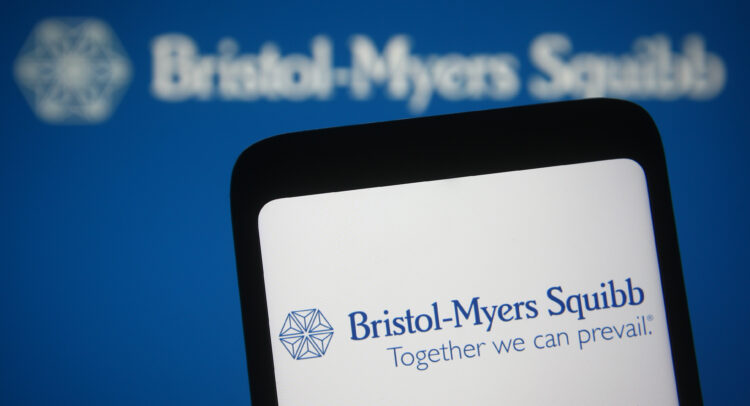Cobenfy, the new schizophrenia drug from Bristol-Myers Squibb (BMY), could be a multibillion-dollar success story in the treatment of Alzheimer’s and set the company up well as it contends with a slate of generic competition this year.
Talking about the drug’s potential uses, CFO David Elkins told CNBC that Alzheimer’s is the “really large market here.”
He went on to explain that the anti-psychosis effects of the drug were important for Alzheimer’s patients. “If you can get rid of the psychosis, the agitation, people’s cognition improves,” he said.
BMY said it would release initial late-stage trial data for Cobenfy in Alzheimer’s-related psychosis treatment later this year.
The drug, the first novel treatment for schizophrenia in decades, comes from its $14 billion acquisition of Karuna Therapeutics in 2023.
Cobenfy Holds Key for BMY Rating
Moreover, his comments come as analysts are sounding bullish over the potential market for the drug, which won approval from the U.S. Food and Drug Administration (FDA) in September.
Jefferies upgraded BMY to Buy from Hold and raised its price target by $7 to $70, citing improved confidence in the company’s product pipeline, more disciplined spending, and greater clarity on regulatory risks.
In particular, it highlighted how Cobenfy was set to become a $10 billion-plus product.
JPMorgan (JPM) analyst Chris Schott believes Cobenfy sales may reach $5 billion by 2030 and with peak sales of around $10 billion.
New Research Shows Promise for BMY
Meanwhile, researchers have published evidence this week indicating that Cobenfy may help reduce cognitive impairments in some schizophrenia patients, in addition to its previously documented effect of reducing both positive and negative symptoms of the illness.
Elkins was speaking on the sidelines of the at the JPMorgan Healthcare Conference in San Francisco, where industry executives addressed a range of topics, including the loss of exclusivity “wave.”
BMY’s Revlimid, the multiple myeloma drug acquired in the buyout of Celgene, faces a slew of generic competitors in March before it hits a full generic market in 2026.
Sales of the drug were $4.4 billion in the first nine months of Fiscal year 2024, but the company expects a significant drop in 2025. Pomalyst and Sprycel, drugs that sold a combined $3.7 billion over the same nine months, are also set to face generics this year, BMY said.
In December, BMY said it had won FDA approval for an injectable version of its cancer treatment Opdivo.
Is BMY a Good Stock to Buy?
Overall, Wall Street has a Hold consensus rating on BMY, based on five Buys, 10 Holds and one Sell. The average BMY price target of $61.80 implies almost 10% upside from the current level. Shares have risen over 18% in the last 12 months.

















